Acne Treatment
Clear Skin Starts Here
our services
What is Acne Treatment?
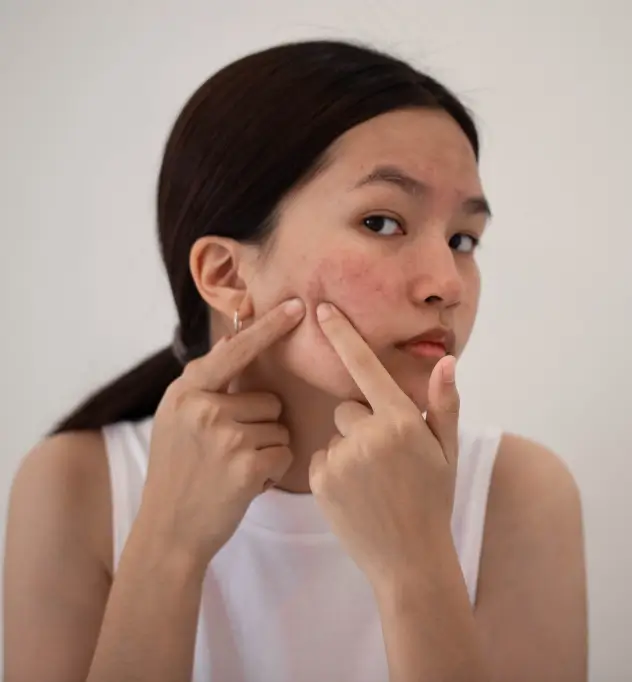
Acne is a common skin condition that occurs when hair follicles become clogged with oil and dead skin cells, resulting in whiteheads, blackheads, and inflamed spots on the face, back, chest, and other areas. It can range from mild to severe and is influenced by factors such as hormones, genetics, diet, and lifestyle.
At Aesthetic Edge, we take a holistic approach to acne treatment, combining advanced technology with dermatological expertise to address both visible symptoms and underlying causes, helping to prevent future breakouts. Our treatments are suitable for multiple areas of the body.

Our Solutions
treatments we provide
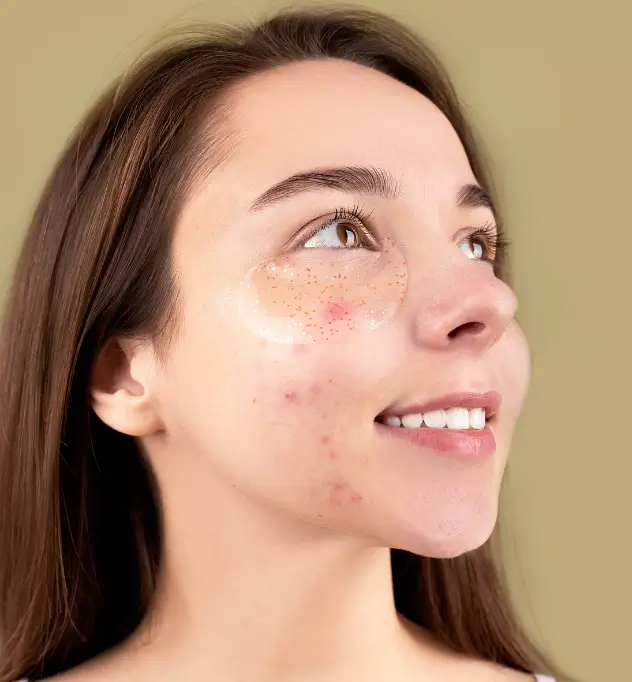
Acne Treatment Options
We offer a variety of treatments that can be combined for optimal results:
- Chemical Peels: Exfoliate and refresh your skin for a smoother texture.
- Microneedling: Repairs scars and boosts collagen production.
- Prescription Medications: For hormonal or severe acne cases.
- Medical-Grade Skincare: Maintain results with curated at-home products.
Transformation
Acne Treatment
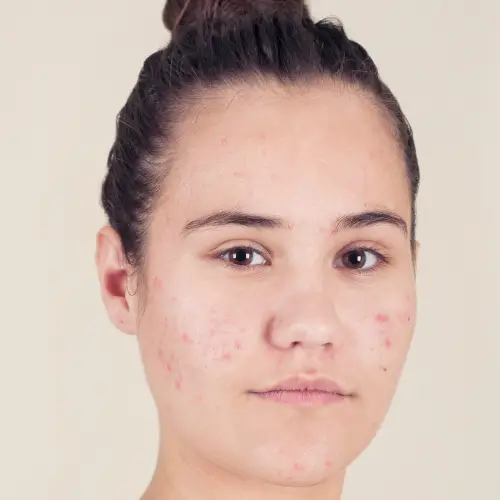
Before
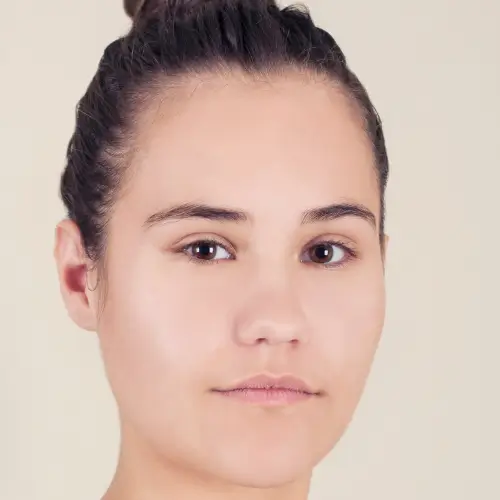
After
Our prices
Acne Treatment Price
why choose us
Effective Acne Treatment
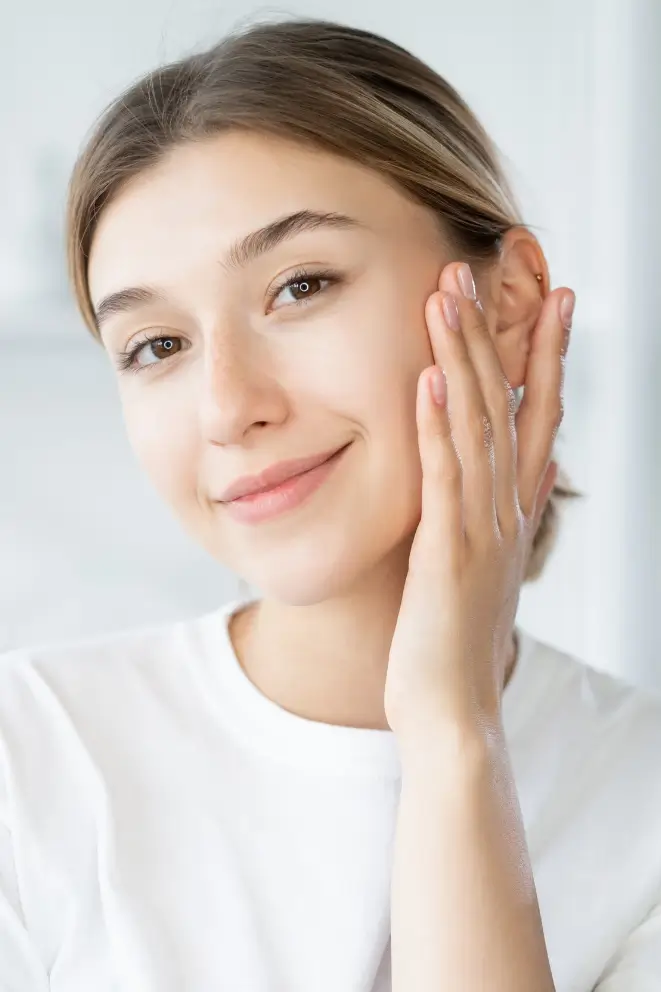
At Aesthetic Edge, we combine cutting-edge technology with years of dermatological expertise. Our holistic approach ensures that we not only treat your acne but also address underlying factors to prevent recurrence.
What sets us apart:
- Personalised Plans: Every treatment is customised to your unique needs.
- Advanced Technology: We use the latest devices and products for maximum effectiveness.
- Experienced Professional: We are highly trained in acne management and skincare.
Acne treatment is suitable for multiple areas of the body, including:
- Face
- Back
- Chest
- Shoulders

Faq's
Common Inquiries
People with acne can begin at any age. But it is most commonly associated with changes in hormone levels during puberty. Acne can also be hereditary and even appear during adult life.
Contrary to popular belief, there’s no scientific evidence to suggest that diet, poor hygiene, or sexual activity contribute to the development of acne.
Here are the six types of spots caused by acne:
- Blackheads are small bumps that can appear on the skin in a black or yellowish colour. There’s a misconception that these are caused by dirt, but they’re actually caused by the natural colour produced by the hair follicle lining.
- Whiteheads are similar to blackheads in appearance. But when squeezed, they don’t empty.
- Papules are small red lumps that may be sore to touch.
- Pustules are like papules but, due to a buildup of pus, they have a white tip in the centre.
- Nodules are hard lumps that develop beneath the skin’s surface.
- Cysts are the most severe type of acne and carry the greatest risk of permanent scarring. They appear as large, pus-filled lumps similar to boils.
Understanding the different types of acne can help you find the best acne treatment for you.
Fungal acne can cause itchy and inflamed skin, appearing when yeast builds up in your hair follicles.
Cystic acne is a severe type of acne, causing pus-filled pimples and nodules, that can lead to scarring
Hormonal acne affects adults who have an overproduction of the sebum, which clogs their pores. This can be caused by hormonal changes in the body.
Nodular acne is a severe form of acne that causes pimples on the surface of your skin and tender lumps under your skin.
In some cases but not all, acne disappears by the mid-20s. But in some cases, the skin condition can persist into adult life.
Harley Street’s acne specialists provide diverse treatments for acne scars, including laser acne treatment and targeted approaches for ice pick scars. Through the expertise of our dermatologists and the creation of personalised treatment plans, we tackle the chronic skin condition of acne scarring, fostering collagen production for healthier skin and a more even skin tone.
Acne Awareness Month is in June. It’s really important to raise awareness about the causes and treatment options for acne. This common skin condition affects millions of people in the UK. By staying informed, individuals can better understand acne and explore effective treatments to address this widespread concern.
Pregnant women should not receive laser treatment with Aesthetic Edge and therefore should speak to their GP for an alternative method taking into consideration any risk factors to the unborn baby.
All skin types can be treated using Aesthetic Edge, yes.
As this is a laser treatment, we highly suggest patients wear sun cream especially during the summer months with excessive exposure to the sun.
There may occur minor side effects which will always be discussed in depth with your skin care expert. Treatment for acne depends on the type of acne you have, which will also be assessed upon consultation.
Topical treatments (e.g., benzoyl peroxide, retinoids): These can cause skin dryness, redness, peeling, and irritation. Some people may experience increased sensitivity to sunlight, making the skin more prone to sunburn.
Oral antibiotics: Antibiotics prescribed for acne may lead to gastrointestinal issues, such as nausea, vomiting, and diarrhea. They can also disrupt the balance of beneficial bacteria in the gut, potentially leading to secondary infections like thrush or yeast infections.
Oral treatments/contraceptives (for hormonal acne): Birth control pills may have side effects such as headache, nausea, breast tenderness, and changes in mood. They can also increase the risk of blood clots in some individuals.
Isotretinoin (Accutane): This potent medication is used for severe or persistent acne, but it has a range of potential side effects. These can include dry and peeling skin, chapped lips, dry eyes, joint and muscle pain, and an increased risk of depression and other mood changes. Isotretinoin is also linked to birth defects and must be used with extreme caution in pregnant women.
Chemical peels and laser treatments: These procedures can cause temporary redness, swelling, and skin sensitivity. In some cases, they may result in hyperpigmentation or scarring.
It’s essential to work closely with a dermatologist when undergoing acne treatment to monitor for any adverse reactions and adjust the treatment plan as needed. Not everyone experiences side effects, and many can be managed or minimised with proper care and guidance from a healthcare professional.
Acne breakouts are often influenced by excess oil production, dead skin cells, and various triggers. Our expert dermatologists at Harley Street address forms of acne, from teenage acne to adult acne. With an extensive range of professional treatments and skincare products, we craft personalised acne treatment plans to combat active acne, promoting clearer skin and preventing further breakouts.
A team of acne experts assess individual skin concerns and devise customised acne treatment plans. Whether dealing with congested, dehydrated, or mature skin, our specialists guide you through a broad range of treatments, ensuring the most suitable and effective solution for your unique skin condition.
